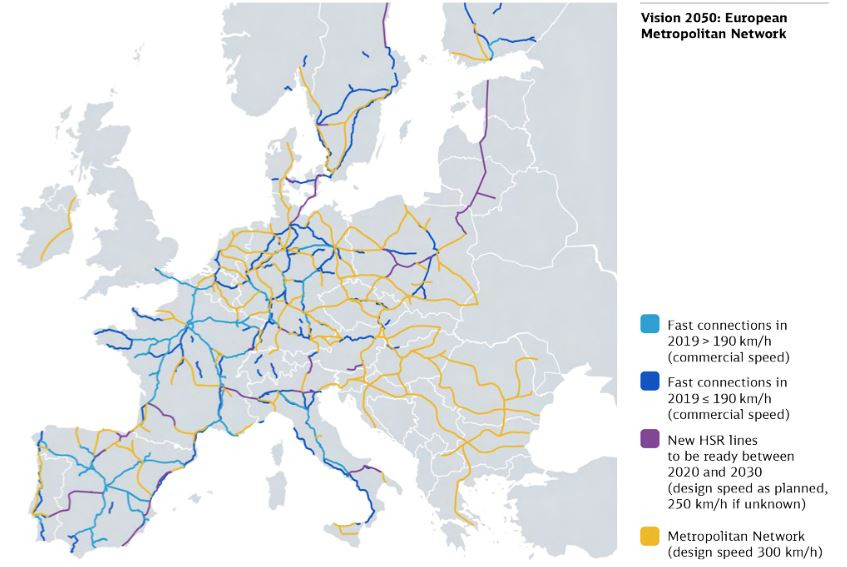EU should triple size of high-speed railway network – Deutsche Bahn report
Clean Energy Wire
To meet the EU’s goal of shifting millions of passengers to rail in order to reduce transport emissions, the continent’s high-speed track network should be expanded from 11,000 kilometers today to 32,000 kilometers by 2050, according to a report published by German operator Deutsche Bahn with other European railways. The companies proposed a “Metropolitan Network” to connect all of the EU’s 230 metropolitan regions and large cities to regular high speed passenger trains, aiming to more than triple high speed rail traffic. Around 60 percent of Europeans live in these metropolitan regions. This expansion of the highspeed rail network would help achieve the EU’s goal of reducing transport-related carbon emissions by 90 percent by 2050, the report says. Germany, Poland, Romania, France and Spain would see the largest expansion of high-speed rail, with Germany’s high speed track length almost tripling to over 6000km if the proposal is implemented.
The transport sector is often referred to as the “problem child” of Germany’s energy transition, because emissions have remained stubbornly high. The country’s environment agency UBA said that Germany could still achieve its 2030 climate targets if it expanded rail transport, among other requirements. But the country is set to spend less than half of the funds originally planned on the modernisation of its ailing railway system, according to media reports.


